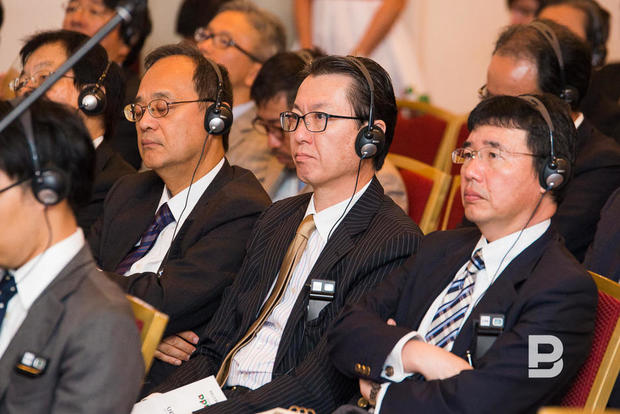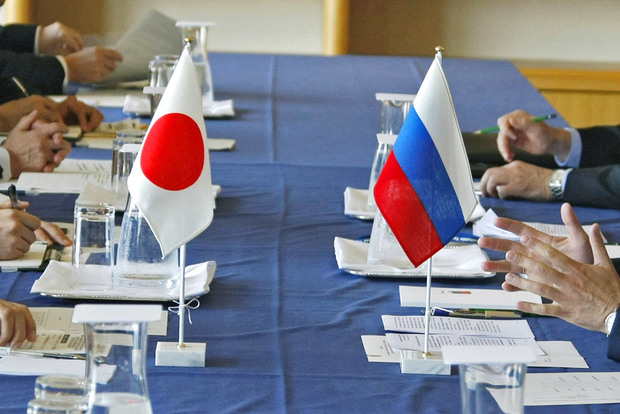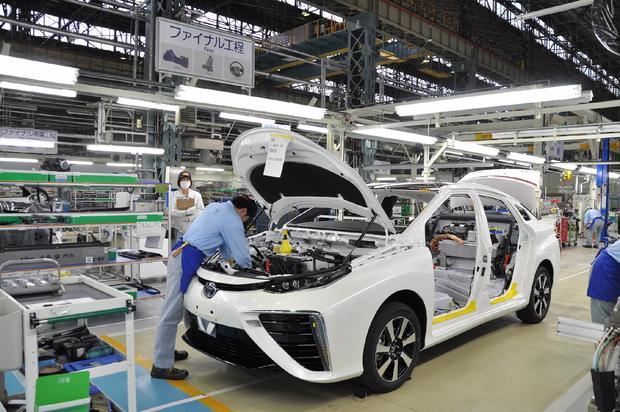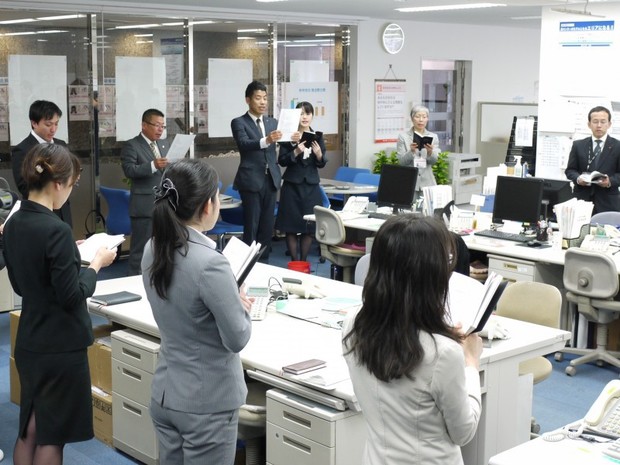Larisa Usmanova: ‘It is almost impossible to persuade the Japanese people while conducting negotiations’
A columnist of Realnoe Vremya tells about the specifics of conducting business negotiations in Japan’
A Japanese delegation arrived in Kazan on 8 August. A part of it is to work in the largest joint projects. Having revealed the specifics of cooperation with Japanese partners at the meeting, the head of the Tatarstan Investment Development Agency Taliya Minullina called the Japanese 'tough negotiators'. Famous expert in Oriental studies Larisa Usmanova prepared an article for Realnoe Vremya and decided to explain what Minullina said. She also told about Japanese traditions of conducting business negotiations in detail.
'Hoeing the roots'
There is a certain ritual in the Japanese model of business relations. First of all, it is necessary to have a clear understanding of the type of negotiations – whether it is a negotiation process that can last for years, whether it is time to sign a specific contract.
It is very difficult to contact with the Japanese even before the negotiation process. It all begins with writing a letter where a potential business partner lets the company know what he or she wants to get from this cooperation. They won't negotiate with you easily. It is also curious that Japanese companies have a special interior decision coordination technique. During the negotiations inside a company, it is known whether this meeting with a potential partner is necessary, who he or she is. There is rather a difficult preparation process inside the company. If you managed to do this preparation work successfully, and the Japanese said they are ready to meet with you, a half of the battle left behind.

'There is a Japanese phrase translated as 'hoeing the roots': it is necessary to hoe break up soil before the appearance of a plant, that is to say, it is necessary to discuss with everybody.' Photo: Maksim Platonov
Its purpose is to get acquainted with you face-to-face, listen to you and get an impression. The key figure usually doesn't meet with a partner at this stage. Some deputy or head of a department who will deliver the information to the head of the company is likely to meet with you. In general, the decision on the appointment of negotiations and a face-to-face meeting is taken by the board of directors. It is not a decision taken by the head. It is a collective decision. There is a Japanese phrase translated as 'hoeing the roots': it is necessary to break up soil before the appearance of a plant, that is to say, it is necessary to discuss with everybody and talk to many departments and only then decide whether this meeting is needed.
What does the Japanese 'yes' mean?
Negotiations are one of the bureaucratic processes that must be even ritually beautiful. The Japanese often make special lists they write in detail who is going to deliver a speech, what he or she is going to tell, how much time is given for the negotiation process and the presentation. At the same time it is allowed to be beyond the regulations, though it is not welcomed. The Japanese conduct negotiations according to quite strict norms of procedures. First persons don't participate in negotiations. They sign the agreements approved by collective decision. During negotiations they are very strict, they clearly express their point of view. It is almost impossible to persuade the Japanese.
At the same time the Japanese are very kind and nice people. They will certainly listen to their interlocutor. The Japanese have a peculiarity – they always say 'yes'. Americans who have ever worked and negotiated with Japanese noted that they always replied 'yes, yes, yes' to offers made by their foreign partners. The Americans were sure that 'yes' meant 'yes, I agree'. But, far from it. It means 'Yes, I've heard what you've said to me'.

'The experience in cooperation with Japanese companies in recent 20 years after the dissolution of the Soviet Union demonstrated we practically have small and medium-sized Japanese business, though it is represented in Korea and China.' Photo: poli.ru
'Only large business works out between Russia and Japan'
Foreign companies often want to meet with their Japanese colleagues and directly go to Japan 'from scratch' – like we will go to the office, and everything will be clear. But, believe me, no one won't welcome them. It is not the way of running a business, especially in Japan. It is impossible to go into business with without understanding of the peculiarities of the structure of a Japanese company. It is unreal, almost impossible.
The experience in cooperation with Japanese companies in recent 20 years after the dissolution of the Soviet Union demonstrated that we almost have small and medium-sized Japanese businesses, though they are represented in Korea and China. Small and medium-sized Japanese companies that work in food or chemical industry, cosmetics try to establish business ties. But there are certain difficulties, first of all, here. For example, taxes. In addition, the Japanese don't want to work in a country where other types of modus operandi are applied, and there is not enough profit in difficult conditions. This is why only large business works out between Russia and Japan.
The Japanese also count on long-term projects. They have big time categories. If they want to cooperate, they want it to be long, not hit the jackpot and go away. By the way, social business responsibility is very important in Japan. It is highly estimated there. Business is integrated in local communities. So it always feels responsibility. Japanese entrepreneurs are interested not only in personal income.
Let's put an example of the enterprises that make a huge contribution to the development of the country like Toyota and Mitsubishi. Japan lives on enormous taxes of these companies. Any a Japanese person who works in an international company will always have a strong patriotic, or I would rather say, nationalistic attitude to the country. Wherever Japanese citizens work, they work for their country and are proud of it.

'Wherever Japanese citizens work, they work for their country and are proud of it.' Photo: insideevs.com
'Sometimes a person working in a company signs a life-long contract'
If we speak about what affected the business ethics of Japan, we should remember that Japan is a small country with a high communication level, on the one hand. But on the other hand, there is little space there. Very Japanese people say they have an island mentality. It means people should not bother each other, they should coexist in one space without conflicts and wars.
Japan suffered from wars in its old days. These wars resulted in huge human losses. A period of stability that dragged on four centuries reigned then. All people in the country knew each other and learnt to come to an agreement successfully. And now the company is a big family for the Japanese.
Sometimes a person working in a company signs a life-long contract with it. Work is the most important thing for a Japanese. Family sometimes takes the second position because the company gives its people a salary, benefits. People get married, divorced, their children study at special schools thanks to their company. Company arranges the Japanese people's life.

'Sometimes a person working in a company signs a life-long contract with it. Work is the most important thing for a Japanese. Family sometimes takes the second position because the company gives its people a salary, benefits. People get married, divorced thanks to their company.' Photo: vc.ru
'Hierarchy is very strict. It also exists in the Japanese business culture'
Hierarchy is also important for the Japanese. The younger people always respects the older ones, while the older ones should support the younger people as a future change of generations. This hierarchy is very strict. It also exists in the Japanese business culture. A young 30-year-old banker like in Russia is an impossible occurrence. It is an absolutely impossible thing in Japan. The Japanese who come here are shocked when they see our young directors of enterprises.
Knowledge or practical skills of a certain person are not so important in the Japanese culture. Experience plays a major role: how much time a person has worked in a company, how well a person knows other workers, what social capital this person has and how much clout this person has.
I should also note that usually state workers, as well as the directors of many big companies in Japan, don't work in one place more than three years. They constantly move from one place to another, from one branch or department to another. It is what allows them to acquaint with the work of their company and meet many people. At the same time people has no opportunity to get used to one place. It excludes corruption. So the Japanese are inspired with the ideas of their company. This is their business ethics.